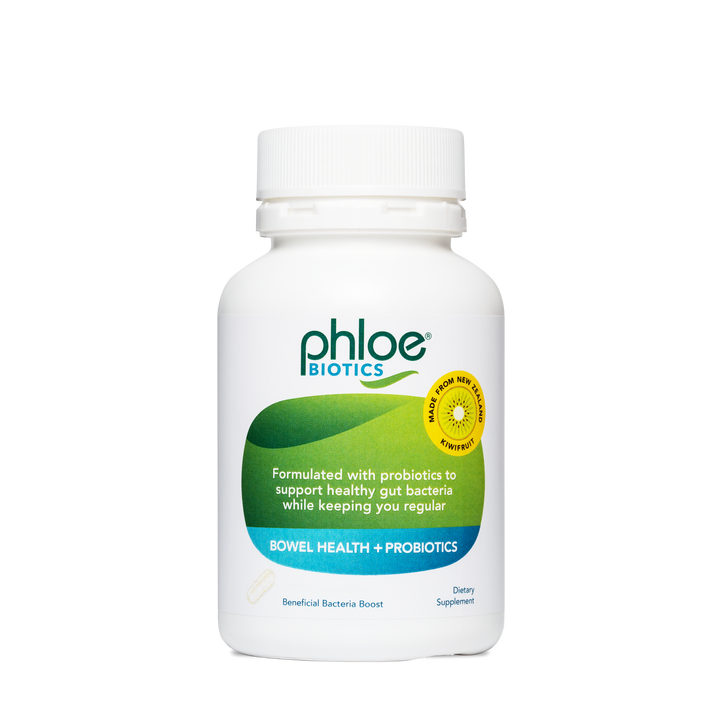Life can be particularly stressful at times. And that makes it easy to eat a whole bunch of foods that your gut doesn't like. Not to mention that stress in general can also change our gut microbiome. Some medications or health issues can also affect a healthy gut function.
Unfortunately for some, stress is a leading cause of gut issues. Particularly those with sensitive tummies. It can be uncomfortable, anti-social and frustrating. It often results in not knowing what to eat, and feeling like everything causes an upset gut.
YOUR BRAIN TALKS TO YOUR GUT
The connection between the digestive and central nervous systems is called ‘the second brain’. It’s clinically known as the ‘gut-brain axis’.
So how does the brain affect your gut function? It communicates to your gut using 3 different nervous systems:
- Parasympathetic
- Sympathetic
- Enteric
At the centre of this communication network is the vagus nerve. This is a long cranial nerve that extends from the brainstem to various organs. It includes the digestive system. The brain sends signals through the vagus nerve to modulate the digestive processes. For instance, when the brain sees or smells food, it triggers the release of saliva and digestive enzymes. This prepares the gut for digestion.
Conversely, the digestive system communicates with the brain through various signalling molecules. These molecules provide feedback about the status of:
- digestion
- nutrient availability
- feelings of hunger and satisfaction
WHAT HAPPENS WHEN YOU’RE FEELING STRESSED?
Stress and emotions play a role in the complex relationship of the gut-brain axis. It involves the release of neurotransmitters and hormone chemical messengers.
Stress and negative emotions can alter the production of these chemical messengers. This can lead to developing an upset gut or more complex digestive disorders.
Let’s consider the hormone serotonin for example. It's known as the "feel-good" hormone and is mostly made in the gut. It's important for controlling mood and affecting the complex system of nerves and receptors in the gut. In simple terms, it’s a hormone that affects how we feel and how our gut works.
The brain's response to stress can alter the following:
- Digestive movement (muscle contraction that moves food through the gut)
- Secretions (fluids and other substances that break down food, absorb nutrients and protect the gut)
- Permeability (how easily nutrients pass through the intestinal lining)
- Digestive comfort (bloating, cramping, irregular bowels, nausea)
- Microbiome (beneficial bacteria/gut flora throughout the digestive system)
Scientists are still to this day researching how our nerve cells communicate. More specifically, with the brain neurons through the gut-brain axis. The common findings are that the gut environment plays a dominant role.
WHAT IS HEALTHY GUT FLORA?
So, let’s delve a little deeper into what gut flora is. Your digestive system is home to trillions of microorganisms. It is a complex ecosystem of:
- Bacteria
- Fungi
- Other microbes such as viruses, archaea and protozoa
Maintaining a healthy gut flora is crucial to your overall health and wellbeing. Sometimes the ‘less than desirable’ microbiome can take over. This can lead to health complications. Your healthy balance of microbiome is essential for:
- Proper digestion
- Nutrient absorption
- The making of certain vitamins
- Healthy immune system function
- Mental and emotional health
WHAT FEEDS YOUR GUT FLORA?
In addition to a healthy diet, you can build healthy gut flora with probiotic supplements.
There are some ‘strains’ of bacteria that are beneficial for supporting gut flora. Especially for those with sensitive digestive systems and who experience frequent loose bowels. There is a special bacteria strain called Bacillus coagulans. Studies have shown its ability to support the normalisation of healthy gut flora within the digestive tract.
This specific strain is in Phloe Biotics. It is formulated to support regular, normal bowel movements. It can be particularly helpful for those who have had frequent antibiotic use too.
As well as taking Phloe Biotics, here are a few tips to help with your digestion:
- Drink gut-soothing herbal tea (Ginger, Turmeric, Peppermint, Liquorice etc.)
- Minimise fatty and sugary food
- Take time to chew (and taste!) your food
- Yoghurt, kefir, sauerkraut, and kimchi
- Avoid foods known to cause digestive discomfort (such as gluten)
- Avoid overuse of antibiotics
Overall, maintaining a healthy gut flora is important. And it can be easily done through diet and targeted supplementation.
WHAT ARE YOUR STRESS LEVELS LIKE?
As we’ve discussed, stress can have a direct impact on your gut health. This means that stress management is key to good health. You can make a huge difference by locking in some easy habits to your daily routine.
Here are some suggestions:
- Practice daily meditation
- Read, take a walk in nature or spend time in the garden. Find a hobby that makes you feel relaxed and happy
- Drink relaxing and gut-supportive herbal teas such as Chamomile and Lemon Balm
- Eat a wide variety of fresh fruit, veggies and wholefoods
- Get daily exercise
- Practice daily breathing techniques
- Talk to a therapist
- Find a phone app that guides you with stress management
In conclusion, managing stress and maintaining a healthy gut are closely intertwined. The gut-brain axis serves as a communication network. This is between the brain and the digestive system. Stress can disrupt the balance of the gut microbiome. This can impact various aspects of your gut function.
Take steps to manage your stress and adopt a balanced diet. Incorporating probiotics and prebiotics to these improvements can also be a valuable addition.
Remember, a healthy gut is essential for overall well-being. By prioritising stress management and gut health, you have the power to live a life of quality.


